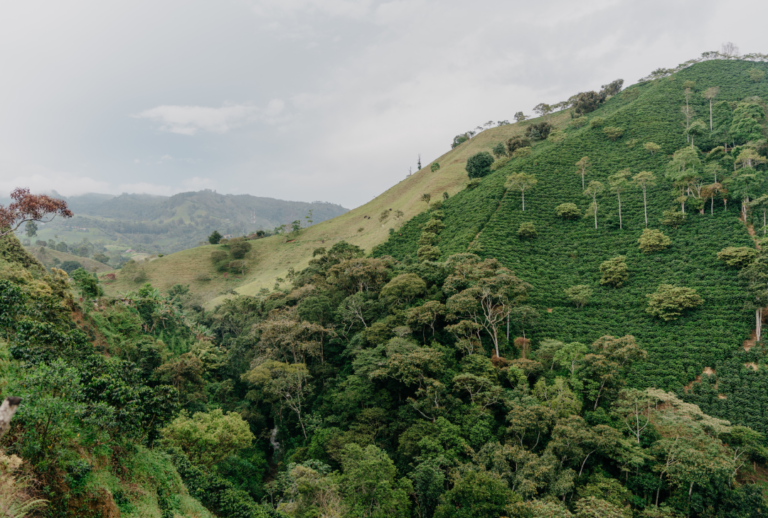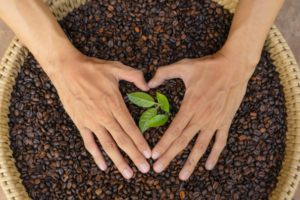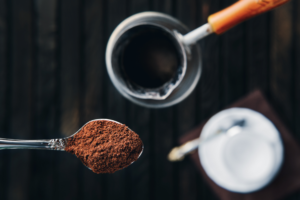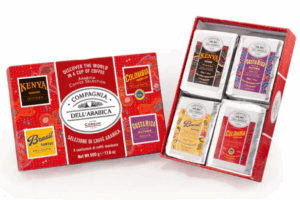
5 Biežākās problēmas, ar kurām cilvēki saskaras, pērkot kafiju
Pērkot kafiju, cilvēki bieži saskaras ar vairākām problēmām. Pirmkārt, ir grūti izvēlēties starp plašo kafijas veidu un zīmolu klāstu. Otrkārt, daudziem ir grūtības noteikt kafijas
Colombia is the fourth largest producer of coffee, with a balance of all the characteristics of a coffee: strong aroma and thick texture, high to medium acidity with a slight floral and tropical fruit aftertaste. As the high mountain areas near the equator with volcanic soils are recognised as the most favourable environment for coffee cultivation, much of Colombia is ideally suited to coffee growing. Due to the climate, only Arabica varieties are grown in the country.
Real Colombian coffee in a shop or café, you can recognise the 'Café de Colombia' logo of the 100% Colombian Coffee Programm, with the advertising hero Juan Valdes against a mountain backdrop. It is a programme that brings together Colombian coffee growers and distributors to promote common values: the pursuit of the highest quality and the philosophy of sustainable development.

There is a version that coffee was introduced to Colombia as early as the 17th century, with the oldest written record of the coffee bean being in a 1730 book by a Jesuit priest, José Gumila, entitled "Illustrated Orinoco". The first coffee plantations were in the east of the country, where commercial coffee cultivation began around 1835. In the late 19th and early 20th centuries, the quantity of beans produced in Colombia increased. Exports to the USA, Germany and France, and later to other European countries and Japan, also began. In the early days of the coffee industry, the growers were mostly all large farms, but in the first decades of the 20th century, the fall in coffee prices and the war caused them to go bankrupt, giving way to the current model of many small coffee farms.
Today, more than 500 000 families in Colombia earn an income from coffee. In 1927, the Colombian Coffee Growers' Federation was set up by small farm owners to better organise coffee exports. With this event, coffee production in the country began to grow rapidly, for a time making Colombia the second largest producer of arabica beans in the world (it is now the third largest).
Colombia is a true "Land of Coffee", with around 3.3 million hectares of plantations in the eastern and central mountainous areas of the country. The richest tasting coffee, with less acidity, comes from the eastern slopes of the Andean Cordillera. These areas have all the conditions necessary for a high-quality coffee: proximity to the equator, which means that the average annual temperature is 18-24°C and there are no frosts or extreme heat; an altitude of around 1800-2000m (coffee grows at similar altitudes in East Africa - Kenya, Ethiopia, Tanzania); sufficient humidity - two rainy seasons (April-May and October-November) followed by a dry period - which allows the coffee to flower and ripen regularly and does not require additional watering.
The quality of the soil is also an important factor in coffee cultivation. Colombian coffee grows in volcanic soil, which provides good aeration of the root system and is rich in minerals, eliminating the need for artificial fertilisers. In addition, most coffee trees can grow under the shade of banana and rubber trees, which protect the plantations from the bright sun. The Cenicafé Research Centre, established in 1938, is responsible for breeding the most suitable varieties for the Colombian climate. The most widely grown Arabica beans in Colombia today are the Tipica, Bourbon, Maragogipe, Tabi, Caturra and Variedad Castillo® varieties.

In Colombia, the coffee beans are hand-harvested, picking only the ripe berries, and treated with a special washing method. To build global awareness of its coffee and ensure that the beans make it all the way to the cup, the Colombian Coffee Growers' Federation (FNC in Spanish) has partnered with coffee brand owners and distributors around the world to create the 100% Colombian Coffee programme. While the coffees often sold in shops are blends of different origins, Colombian coffee growers want their coffees to be distinguished from mass-produced products and consider it important to inform consumers about the origin of the beans and to guarantee the authenticity of the coffee. Such authentic Colombian coffee is marked with the Café de Colombia logo. However, not all Colombian coffee growers are affiliated to the Federation of Coffee Growers. 38 Colombian cooperatives operate independently and 19 of them have been awarded the Fairtrade label.

Pērkot kafiju, cilvēki bieži saskaras ar vairākām problēmām. Pirmkārt, ir grūti izvēlēties starp plašo kafijas veidu un zīmolu klāstu. Otrkārt, daudziem ir grūtības noteikt kafijas

Tuvojoties Valentīndienai, romantiskas noskaņas pārņem ikvienu, un arvien biežāk tiek meklētas gardas, bet vienkāršas receptes, ar kurām iepriecināt mīļotā cilvēka garšas kārpiņas. Ja vēlies desertu,

Mūsdienās arvien lielāka uzmanība tiek pievērsta ilgtspējai, atbildīgam patēriņam un resursu taupīšanai. Vienlaikus pasaulē joprojām tiek izmesti miljoniem tonnu pilnīgi derīgas pārtikas, tostarp produkti, kas

Kafija 2025. gadā joprojām ir viens no visbiežāk patērētajiem dzērieniem, un arvien vairāk cilvēku pievērš uzmanību ne tikai cenai, bet arī kvalitātei, izcelsmei un pagatavošanas

Kafija ziemā kļūst par siltu rituālu, kas palīdz sākt rītu, paņemt pauzi dienas vidū vai noslēgt vakaru mierīgā noskaņā. Tieši aukstajā gada laikā daudzi meklē

Lielākā daļa cilvēku mājās negatavo kafiju ar svariem, termometriem un hronometriem. Un tas ir pilnīgi normāli. Ikdienā kafiju gatavo ar to, kas ir pa rokai

Kafija pasaulē ir viens no populārākajiem dzērieniem, taču tās kvalitāte var ļoti atšķirties. Viena kafija ir aromātiska, tīra un patīkama, bet cita rūgta, plakana vai

Ir tas gada brīdis, kad visi izliekamies, ka dāvanu izvēle ir “tik patīkams process”. Protams. Realitātē tu, visticamāk, klīsti starp bezpersoniskiem komplektiem un aromatizētu ziepju
Pieraksties akcijām un jaunumiem
saņem 10% atlaidi pirmajam pirkumam
